Would you fancy swapping your krill and fishmeal boilies for bug-based alternatives this season? That’s exactly what a handful of forward-thinking bait companies are suggesting, as they look to offer anglers a new generation of eco-friendly products.
UK bait makers have already started using ingredients like flies, worms and even snails in their products. Aside from the quest to find sustainable alternatives to the likes of krill and pelagic fish, the baits also offer a natural “edge” to those brave enough to try them. But is this type of product a feasible answer on a much larger scale?
“We can’t keep raiding the sea forever!” said avid angler and fish farmer Viv Shears.
Instrumental in setting up the Anglers’ National Line Recycling Scheme, as well as running the UK’s biggest carp farming operation, he’s adamant that change is needed.
“We must continue to look at sustainable alternatives, so I applaud efforts to do so.
“Historically, the whole industry has depended on fishmeal – and the commercial sector tends to directly feed into the angling world” he told us.
“We’ve seen greater use of vegetable and cereal proteins for some time now, but we need to go further.”
Besides the appeal to conscientious anglers, insect-based baits could also offer foods that are more naturally suitable for carp and other coarse fish, not to mention giving anglers solutions that stand out from the crowd at busy fisheries.
However, it could ultimately be rising fishmeal prices and the increased availability of insect meal and other green alternatives that accelerate change.
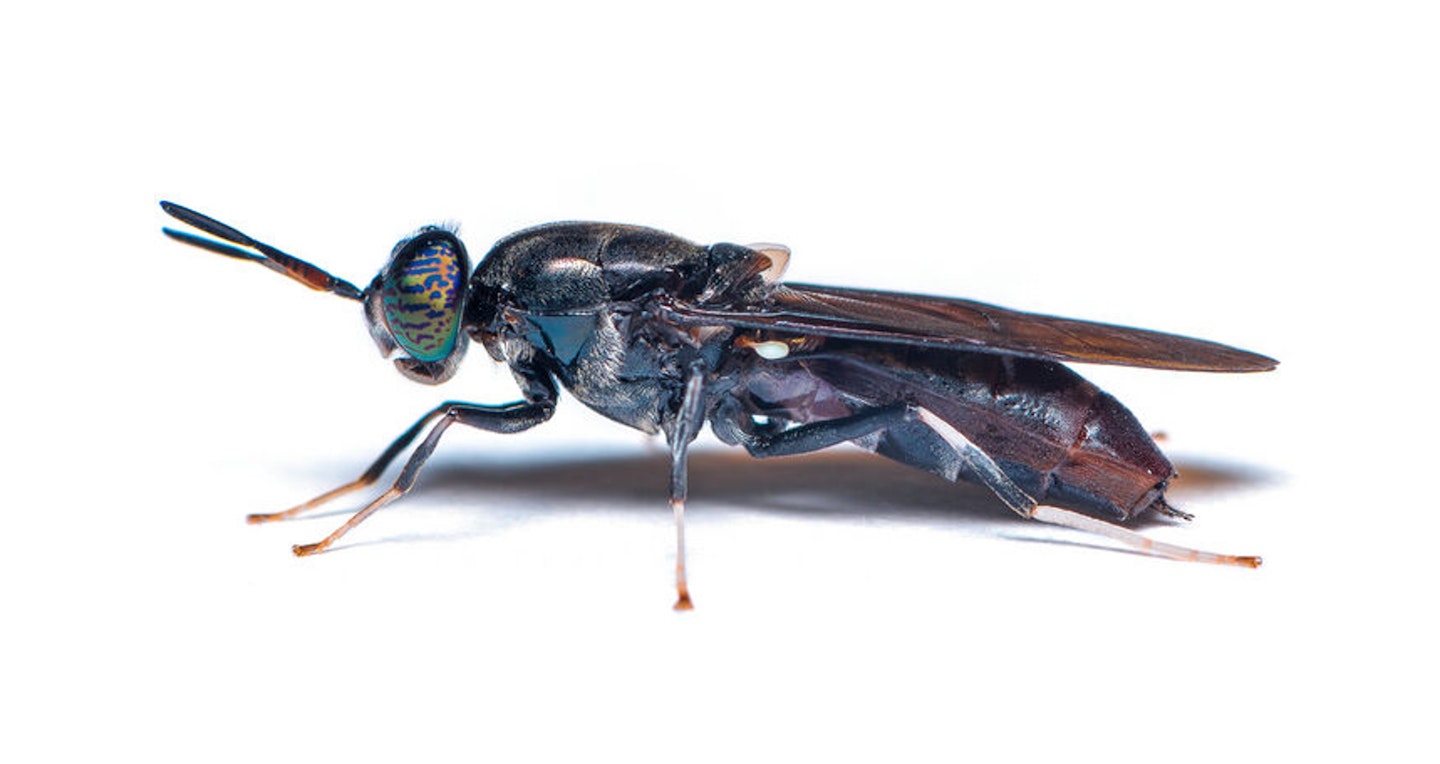
Flying in the face of fishmeal?
While British companies are now innovating with niche products, the European market is evolving too. Dutch company Biemans Baits is among the boldest, offering a completely insect-based range.
“The mission is to change the bait market!” said owner Daan Biemans.
“Fishmeal is not a very sustainable way of creating bait. Insect meal is way more sustainable!”
he added, pointing out that insects are now being ‘farmed on an industrial scale’, often by up-cycling by-products from the food industry. With its own insect farming plant, the company chiefly uses black soldier fly for boilies and carp products.
Beyond the sustainability angle, Biemans also claims – much like UK innovators – that carp respond excellently to insect and organic proteins that are far closer to their natural diet than fishmeal products.
While his company’s baits are not yet available in UK stores, an English version of its website is already underway.
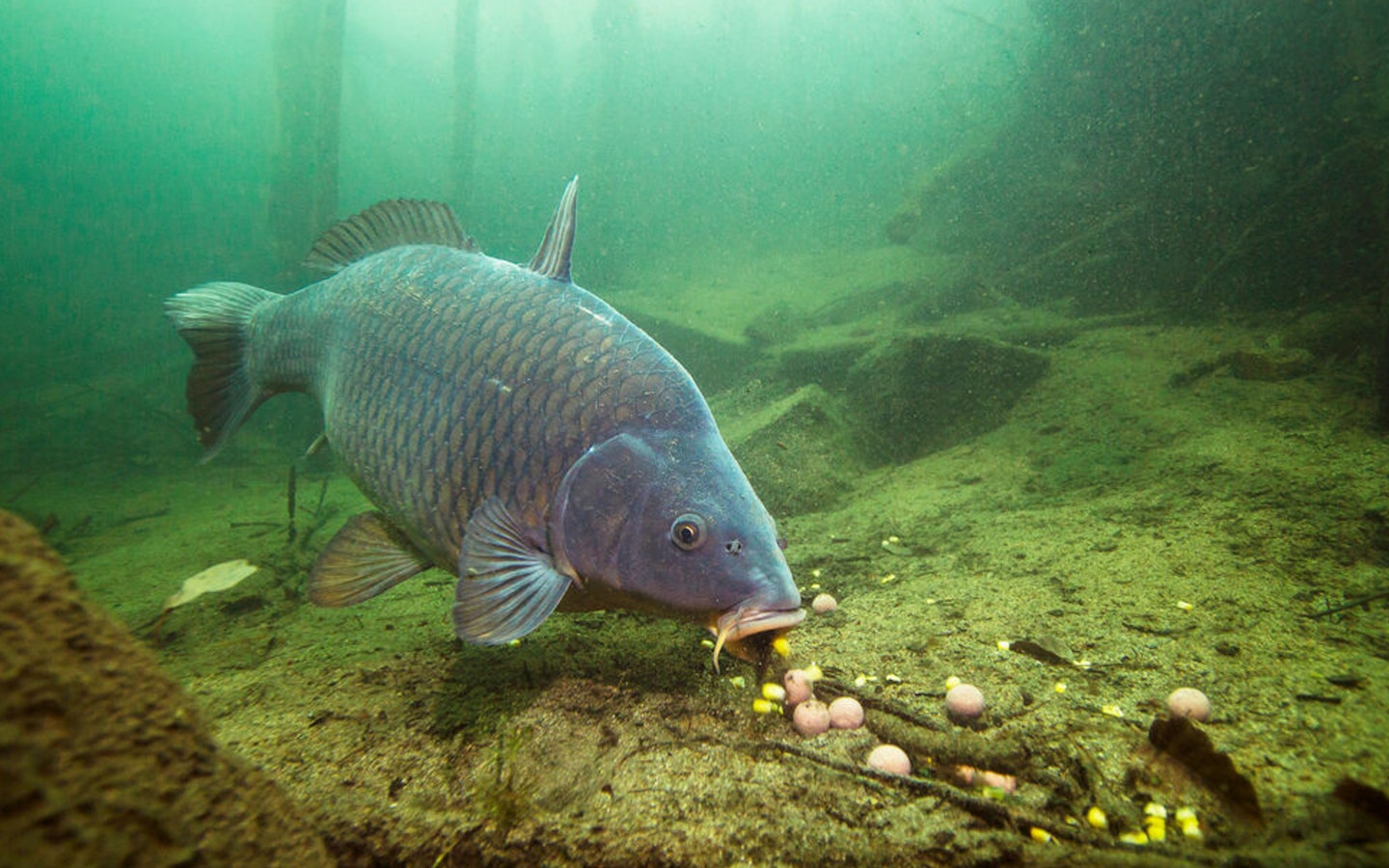
Crawling to a tackle shop near you!
Among various niche products, a handful on the current market have caught our eye lately.
Eclipse Baits makes LSI Boilies, which literally stands for “Land Snail and Insect”. The shelled delicacies are sourced from the food trade rather than back gardens and parks!
DNA Baits is another mover (or should that be wriggler?) in the market with “The Bug” baits range. These boilies, pellets and dips utilise black soldier fly, which is raised using by-products from the brewing industry.
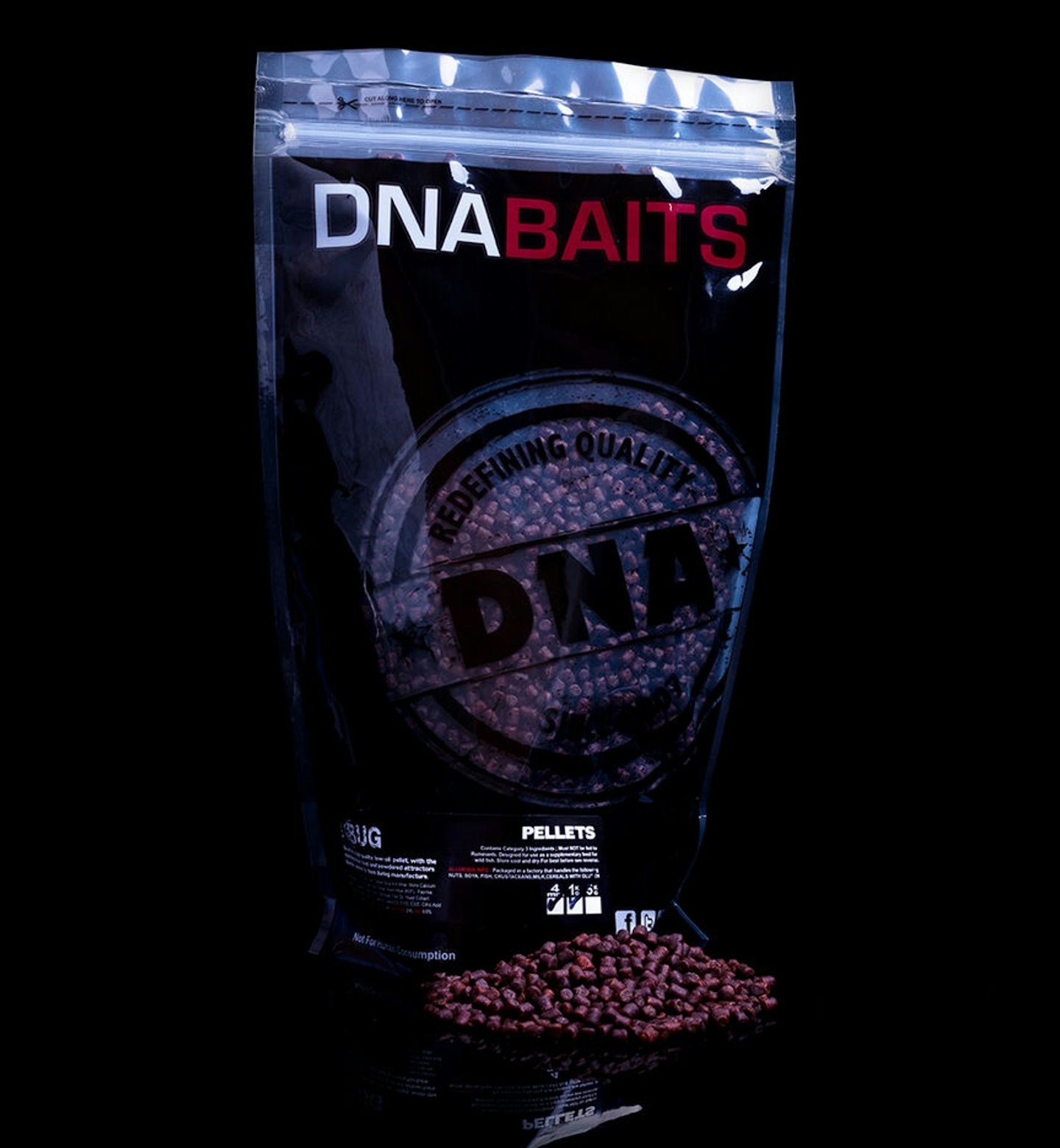
Not only does this make for more sustainable proteins, but a very effective carp-catcher.
Perhaps the simplest product of all, however, is the “Dried Insect Meal” from CC Moore. Packed with real worms, shrimps, flies and more, it’s easy to add to groundbaits and spod mixes. It sounds either disgusting or delicious, depending on whether you’re a human being or a fish!
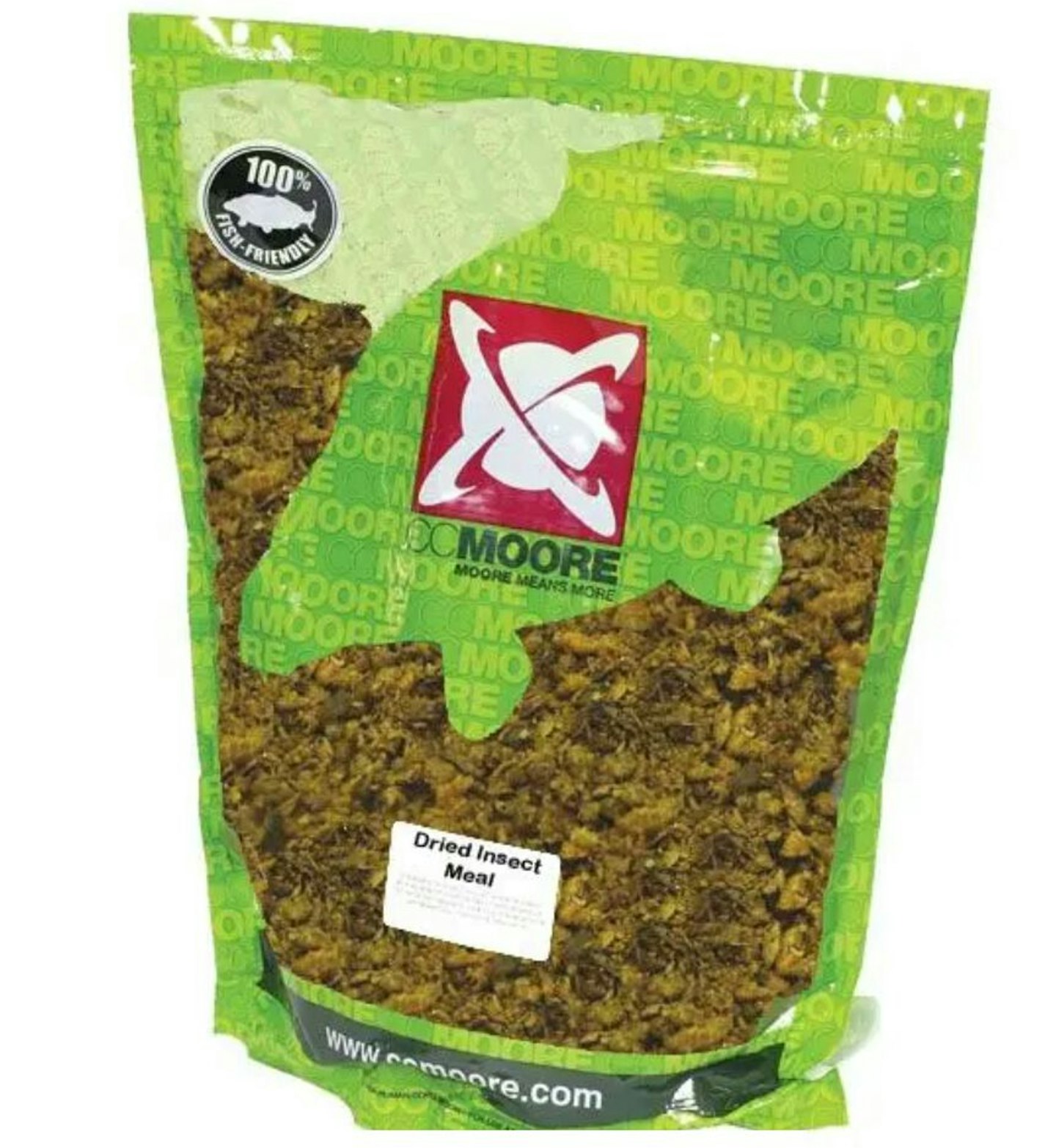
What is fishmeal?
Fishmeal is derived from commercial sea fishing, and the harvesting of smaller fish, or waste products such as offal. Many species find their way into fishmeal, particularly oily fish like anchovies and herring, and it takes up to five tons of processed fish to produce just one of fishmeal. Besides angling baits, huge quantities go into animal feeds.
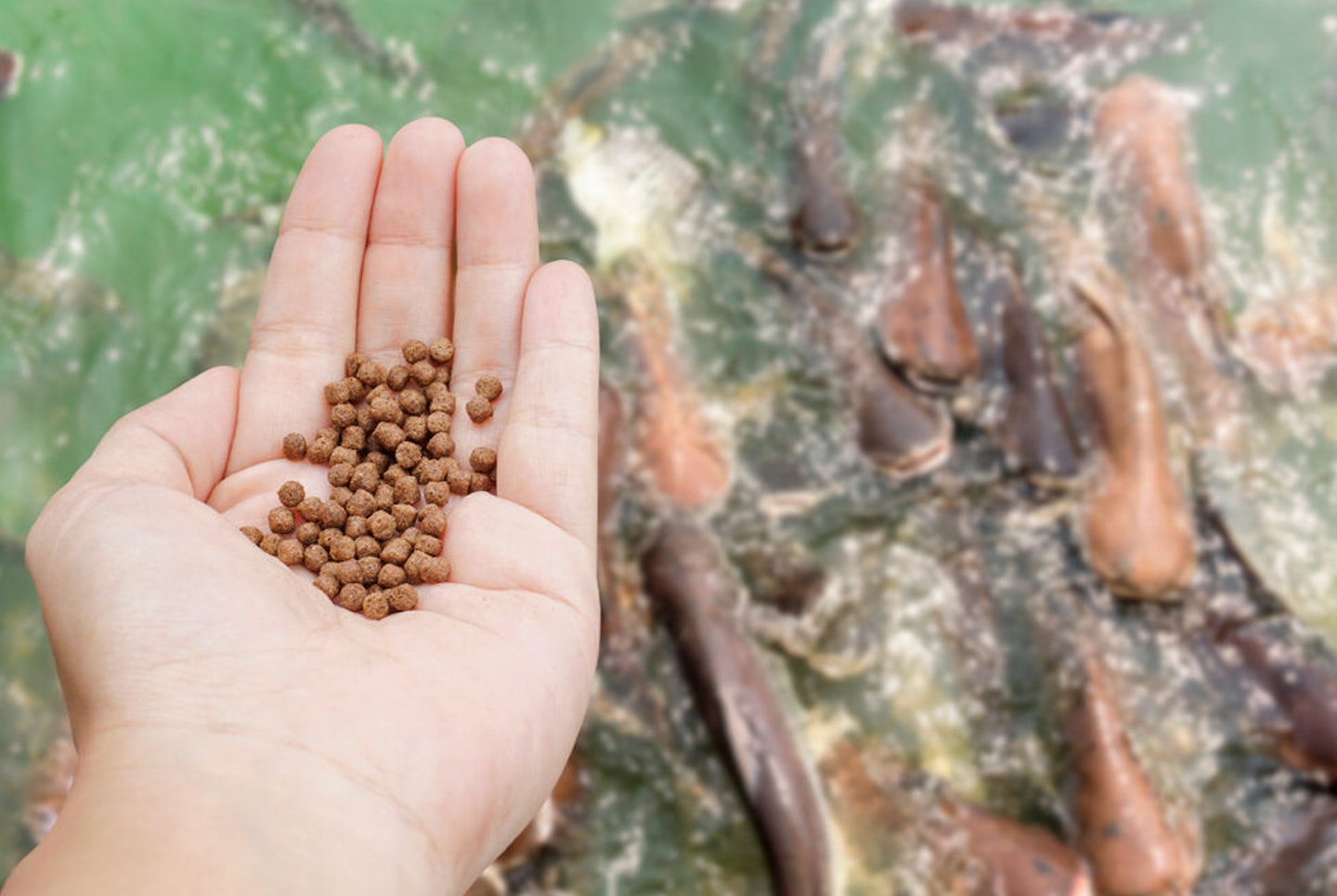
Why the controversy?
Fishmeal contributes greatly to overfishing and the depletion of ecosystems. With the world’s population growing, prices have increased, creating pressure to find alternatives. The quality and sustainability of fishmeal varies immensely. While some bait companies are pledging to move to sustainable suppliers and alternative ingredients, it’s still a contentious area. As far as angler choice goes, it’s also fair to say that the amount of information on bait packaging is bordering on non-existent.
